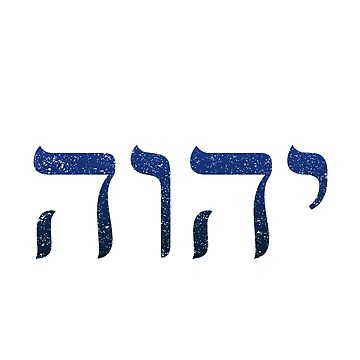Por Ariella Casey
Existe una filosofía de que las personas nacen en un destino y que no importa qué camino elijan, terminarán de acuerdo con su destino predeterminado. Lamentablemente, esto es adoptado por muchas religiones, incluso algunas ramas del judaísmo.
Muchos judíos creen que haber nacido judíos en realidad los convierte en elegidos. Que esto automáticamente hace que todas sus decisiones apoyen de alguna manera un propósito y un destino superior. He oído que todos los judíos heredan el más allá. Pero nada de esto es bíblico.
Hablando a Israel, Moisés los desafió antes de morir:
“Pongo hoy por testigos contra vosotros al cielo y a la tierra, que os he puesto delante la vida y la muerte, la bendición y la maldición; escoge, pues, la vida, para que vivas tú y tu descendencia, para amar a Jehová tu Dios, para obedecer su voz, y adhiérete a él; porque él es tu vida, y la duración de tus días, para que habites en la tierra que Jehová juró a tus padres, a Abraham, a Isaac y a Jacob, que les daría;”. (DEU 30:19-20)
Adam Rishon eligió en Gan Eden comer la fruta que abriría dos opciones para sus descendientes: dos conciencias, por así decirlo, están ahí afuera hablando a la voluntad humana; el poder para el bien y el poder para el mal. Si un joven elige correctamente, incluso cuando es un niño pequeño, es decir, sigue el camino del bien, cada vez que se enfrenta a una decisión, le resultará cada vez más fácil elegir el camino correcto. La voz maligna se vuelve cada vez más silenciosa hasta que casi no hay impulso para la inclinación al mal. Lo mismo sucede si un niño es rebelde y prueba el mal que tiene delante. La siguiente elección se vuelve cada vez más fácil, y si no corrige su camino, terminará completamente bajo el poder del mal. Se convierte en una trampa de acero en la que no puede elegir lo correcto aunque piense en hacerlo.
Pero está claro que todo esto depende de cada uno. La Biblia no apoya la idea de que haya personas destinadas al infierno. A menudo parece así cuando vemos a padres malvados abusar de sus pequeños y hacer que se rebelen y prueben el camino del mal. ¡Quizás deberíamos decir que los padres tienen mucho que ver con las decisiones que toman sus hijos!
Éxodo 20:5 nos dice que el mal continúa hasta la tercera y cuarta generación de los que odian al Dios del Universo. ¿Pero es eso predestinación? ¿O es eso el resultado de las elecciones de una persona? ¿El destino de uno se ve afectado por las decisiones que toman sus padres?
Cuando estudiamos las vidas de aquellos antes del Diluvio, vemos dos líneas de personas, los justos y los malvados. Quizás esto sugiera predestinación. Pero no lleguemos a esa conclusión todavía. Los que eligieron bien abrieron camino a su descendencia, así como los que hicieron el mal a su descendencia. Si tomamos la regla matemática establecida anteriormente (de 3 a 4 generaciones de maldad después de que un padre se rebela), entonces, si los descendientes no se vuelven y se arrepienten de la maldad de sus padres, y salen de ese sistema, el mal seguirá de ellos otras 3 o 4 generaciones y así, de una generación a otra, tal vez así en adelante para siempre. Pero de vez en cuando vemos a alguien rebelarse contra el mal que le ha sido impuesto, girar 180 grados y hacer lo correcto. ¡Veamos si esto es correcto!
“Y si ha engendrado un hijo violento, derramador de sangre, y que hace solo una de estas cosas, y que no cumple ninguno de esos deberes, sino que además come en los montes y contamina a la mujer de su prójimo, oprimió al pobre y necesitado, ejerció el robo, no devolvió la prenda, y alzó sus ojos a los ídolos, cometió abominación, dio a usura y recibió ganancias, ¿no vivirá? Ha hecho todas estas abominaciones; ciertamente morirá; su sangre será sobre él”.
“Pero he aquí, si ha engendrado un hijo que ve todos los pecados que su padre ha cometido, y considera, y no le agradan: No comió en los montes, ni alzó sus ojos a los ídolos de la casa de Israel; no ha deshonrado a la mujer de su prójimo, ni ha oprimido a nadie, ni ha retenido la prenda, ni ha practicado robo; al hambriento dio su pan, y al desnudo cubrió con un manto; Retiró su mano de los pobres, no recibió usura ni aumento, cumplió mis derechos y anduvo en mis estatutos; no morirá por la iniquidad de su padre. Ciertamente vivirá. En cuanto a su padre, por cuanto hizo opresión, robo a su hermano e hizo lo que no era bueno entre su pueblo, he aquí, morirá en su iniquidad. Y decís: ¿Por qué el hijo no lleva la iniquidad del padre? Pero el hijo hizo juicio y justicia, guardó todos mis estatutos y los cumplió; ciertamente vivirá.” (Reyes 18:10-19)
Es realmente simple, ¡haz el bien y vive, haz el mal y muere! ¡La elección es tuya! ¡Pero será necesaria cierta abnegación y una revisión completa de las inclinaciones de uno!
La idea errónea de que los judíos nacen santificados de alguna manera es errónea. A toda la humanidad se le permite seguir la Torá. ¡si así lo desean! La gente dice que el Tanaj fue escrito para los judíos (las 12 tribus, en realidad), pero ¿es esto cierto? ¿Qué pasa con esa persona en La La Land que de repente ve que hay una mejor manera y elige unirse al pacto y seguirlo lo mejor que puede? Algunos los llaman conversos. ¿Está exento del pacto sólo porque no nació judío?
¡Es una mentira terrible que sólo se elija a los judíos! ¡Lea todos los versículos del Tanaj sobre el Ger, el Extraño o como lea su Biblia!
“Así dice Jehová: Guardad la justicia y haced justicia; porque cercana está mi salvación para venir, y mi justicia para ser revelada. Bienaventurado el hombre que hace esto, y el hijo del hombre que lo retiene, que guarda el sábado. Ni el extranjero que se ha unido a Jehová hable, diciendo: Ciertamente, Jehová me separará de su pueblo, ni el eunuco diga: He aquí, soy seco; porque así dice Jehová de los eunucos que guardan mis sábados, y escogen lo que me agrada, y retienen mi pacto: A ellos les daré en mi casa y dentro de mis muros memoria y nombre mejor que el de hijos y. de hijas; les daré un nombre eterno, que no será cortado.También los extranjeros que se unen a Jehová para ministrarle, y amar el nombre de Jehová, para ser sus siervos, todos los que guardan el sábado para no profanarlo, y retienen mi pacto; aun a ellos los llevaré a mi santo monte, y los alegraré en mi casa de oración: sus holocaustos y sus sacrificios serán aceptados sobre mi altar; porque mi casa será llamada casa de oración para todos los pueblos. Dice el Señor Jehová, que reúne a los desterrados de Israel: Aún juntaré junto a él a otros, además de los suyos, que están reunidos.” (Isaías 56:1-8)
¡Lee eso de nuevo! YHWH se va a reunir”otros, además del suyo”!
Vemos a los judíos convirtiendo a las personas en Noájidas porque no pueden tolerar la idea de ser desafiados por las multitudes que quieren la salvación. El Tanaj deja claro que el pueblo puede aferrarse al pacto y vivir entre el pueblo de Israel. Según la Torá, incluso algunos de los enemigos de Israel podrían convertirse en parte del pueblo y adorar con él después de varias generaciones.
“No entrará amonita ni moabita en la asamblea de Jehová; ni aun hasta la décima generación, ninguno de ellos entrará en la asamblea de Jehová para siempre:” (Deuteronomio 23:3).
Una lectura minuciosa de este versículo muestra que hasta la décima generación, no se les permitiría estar en el Beit HaMikdash. Cuando dice para siempre, no puede significar nunca. Según tengo entendido, esta regla se aplica para siempre. Entonces, ¿qué significa? Que un moabita elija vivir entre el pueblo de Israel no podrá entrar al Templo durante 10 generaciones. ¿Por qué tan estricto? ¡Evidentemente, con estos idólatras, el mal era tan grande que fue incorregible durante 10 generaciones! ¿Qué pasa con Rut–(una moabita)? ¿Esto de alguna manera no se aplicaba porque ella se casó con un judío? Sólo tres generaciones después, David nació y vivió como judío y entró en el Santo Templo. Incluso planeó la construcción del primer templo. ¿Eso invalidó de alguna manera la declaración hecha por Moisés en Deuteronomio? ¿El matrimonio cambia un poco el efecto de la ascendencia de uno?
En resumen, la puerta del Cielo siempre está abierta para aquellos que se arrepienten, se apartan de sus malos caminos y se aferran al pacto. Hay que tomar decisiones y tener firmeza decidida en seguir el camino de los justos:
“Pero el camino de los justos es como la luz resplandeciente, que brilla cada vez más hasta llegar al día perfecto”. (Pr 4:18)
Follow Take Hold the Tzitzit on WordPress.com (Clic, Síganme en mi sitio Web.)
¡Favor de compartir, gustar, y comentar! Me ayuda mucho en abrir camino para mi sitio web.




